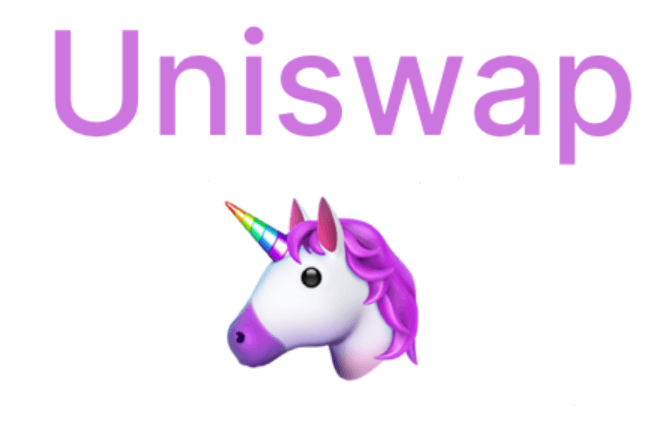A DAO stands for a Decentralized Autonomous Organization (in English also called Decentralized Autonomous Organization). This is an organization that is run according to a cleverly written contract by rules that are specifically drawn up therein. The rules are kept in a blockchain. Not controlled by a government or other body and transparent are keywords that suit a DAO.
The bylaws of a DAO are embedded in the contract code, which certainly makes a DAO one of the most complex forms of a smart contract. Partly because of the complex rules. If you look historically at when this type of organization originated, the Bitcoin network would be a good example. This was the first autonomous company to be coordinated via a distributed consensus protocol.
A well-known example from practice
But if you look at other experiences from practice, then the company ‘The Dao’ was the best known. This organization was digital, and an investor-driven venture capital fund. The aim of this company was to create a renewed decentralized business model for organizing non-profit and commercial companies.
The model was on Ethereum via a blockchain, incidentally without a board of directors or a traditional management structure. In addition, the code is open source. In June 2016 there was a bug in the system, which caused part of the fund to be diverted. What followed was one of the largest crowdfunding campaigns there has ever been in this area: a hard-fork via Ethereum, to restore the fund to its former state.
What are the requirements for a DAO?
The following are necessary to set up a DAO:
- A list of programmed rules, clearly states how the organization should run. Codes that are designed are also put into a smart contract.
- Tokens that can be issued by the organization, including to receive a reward for certain activities.
- Investors who want to buy the above tokens, and thus gain partial control over the ins and outs of the organization. They can then steer the organization towards greater success, and thus also determine the working method.
What are the advantages and disadvantages of a DAO
These are the advantages of a DAO:
- People focus more on tasks that really make a difference to the company, instead of working according to a routine. As a result, processes are designed more efficiently and can also be improved more easily.
- Because everyone within the organization can think along innovatively, there is less hierarchy within the company. To prevent a flood of ideas, it is often set that in order to come up with an idea, a small amount must be invested.
- The transactions take place via a blockchain and are made transparent for everyone. That is why most DAOs are 100% transparent.
These are the disadvantages of a DAO:
- Because the programming code cannot be adjusted inappropriately. Every member has to give their approval for a wish for change. One ‘no’ means no adjustment. If there is an error in the code, and a solution is not quickly found, the entire company can go bankrupt.
- Unsurprisingly, every company must adhere to legal rules. Since not all laws are in place with regard to cryptocurrency and blockchain yet, a DAO can encounter many obstacles in the beginning. As society becomes more and more confronted with DAOs, these barriers will also decrease.
For example, the first drawback has caused major problems for Ethereum’s project, which we talked about earlier: ‘The Dao’. So the goal was to create and run a decentralized investment company, which had a very high chance of success in the beginning.
But due to a leak in the programming code, one person had the idea to let the profits drain an investment more than once. The result of The Dao was a loss of millions of euros. Because adapting a programming code is therefore not so easy, such scenarios are certainly indispensable in other DAOs if they are not carefully checked and guaranteed.
Well-known DAO’s
There are now many well-known DAOs, top DAOs. Especially with the rise of Decentralized Finance (DeFi) in 2019 and 2020. Several new players have emerged that use the DAO principle to govern the DeFi protocol. Some examples are Uniswap (UNI), Compound (COMP), Aave (AAVE), and DAO Maker (DAO).

Starting a DAO yourself
There are crypto projects that want to make it easy for everyone to start a DAO themselves. A well-known example of such a project is Aragon (ANT). Aragon is a decentralized platform built on the Ethereum network that provides a modular way to create and manage dApps, crypto protocols, and DAOs. If you’re interested in setting up DAO, simply follow the steps on the Aragon website.
future
A DAO is a very interesting concept that in the long run can radically change organizations with the benefits that a DAO offers. However, there are still legal uncertainties and drawbacks that may cause adaptation and adoption to proceed more slowly than expected. Remember that organizational culture changes often happen slowly. Especially when it comes to a shift in the balance of power. It is a revolutionary concept with possibly the pace of evolution. Either way, it’s a development to keep an eye on!
As an NFT investor, how can you invest in a DAO yourself?
As an investor, you can easily invest in a DAO. This is because each DAO has its own token, which is easy to purchase during an ICO with Ethereum or Bitcoin. The following applies: the more NFTs that are purchased, the more say you have about the company’s working methods. Well-known examples of well-performing NFT DAO Projects are SOL Shamans and APE from the BAYC.
